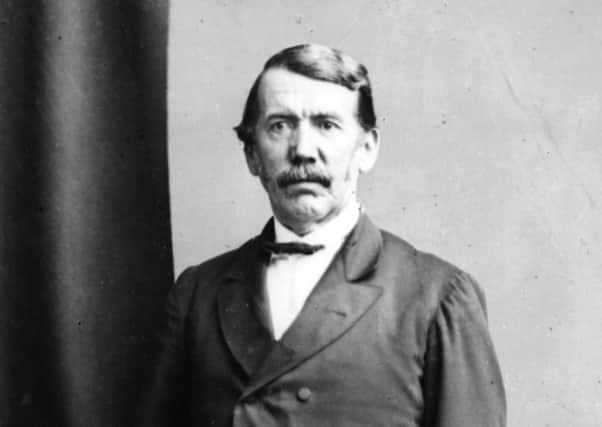Lost Livingstone letters saved by National Library


The previously unpublished letters were written after January 1857, while Livingstone worked on Missionary Travels, his narrative of his travels and discoveries in central Africa.
They reveal how the national hero feared unauthorised versions of his travels would impact on sales of his own official account, and how he even thought of abandoning his work as rival publishers tried to cash in on his fame.
Advertisement
Hide AdAdvertisement
Hide AdOne letter to his publishers John Murray also reveals how he wanted illustrations of African people to depict them as “good looking”.
The documents, which were kept together for more than 150 years by descendants of Livingstone’s publisher, were sold to a mystery bidder at Bonhams’ auctioneers in London last week, for a combined total of £24,062.50.
Now the NLS has revealed it “secure them for the nation”.
Dr John Scally, National Librarian and Chief Executive, said: “As a major repository for David Livingstone papers and custodians of the John Murray publishing archive, we are delighted to have secured these letters for the nation.
“The letters – from Livingstone to his publishers, John Murray – shed light on his popular accounts of his explorations of Africa, including Missionary Travels, arguably the best-selling travel account of the Victorian age.
Advertisement
Hide AdAdvertisement
Hide Ad“We look forward to bringing them to Edinburgh and exploring their contents.”
The letters all came from the same collection, from a descendent of Robert Cooke, who worked for Livingstone’s publishers John Murray, and have never been seen in public.
In one, written in January 1857, Livingstone describes his frustration with rival publishers who, keen to cash in on his fame, were producing volumes claiming to be either written or consented by him.
In the letter – which fetched £3500 – the explorer likens them to “hyaenas – low, dastardly, greedy hideous brutes – much given to cowardly filching.”
Advertisement
Hide AdAdvertisement
Hide AdHe adds: “Now as I am engaged in writing a narrative of my own travels and discoveries with the hope that the profits of the work may assist in the education of my children... it does seem hard to think of Messrs Routledge and Co coming forward and by a barefaced public lie try to filch the profits out of our hands.”
Persuaded to carry on writing, Livingstone would go on to complete the greatest – and most profitable – travel journal of the Victorian era.
One of Livingstone’s concerns had been that rival accounts would result in inaccurate claims about Africa being wrongly attributed to him.
A spokesman for Bonhams said: “These were important letters and it is good that they will be staying in Scotland and housed in one of the nation’s great institutions.”